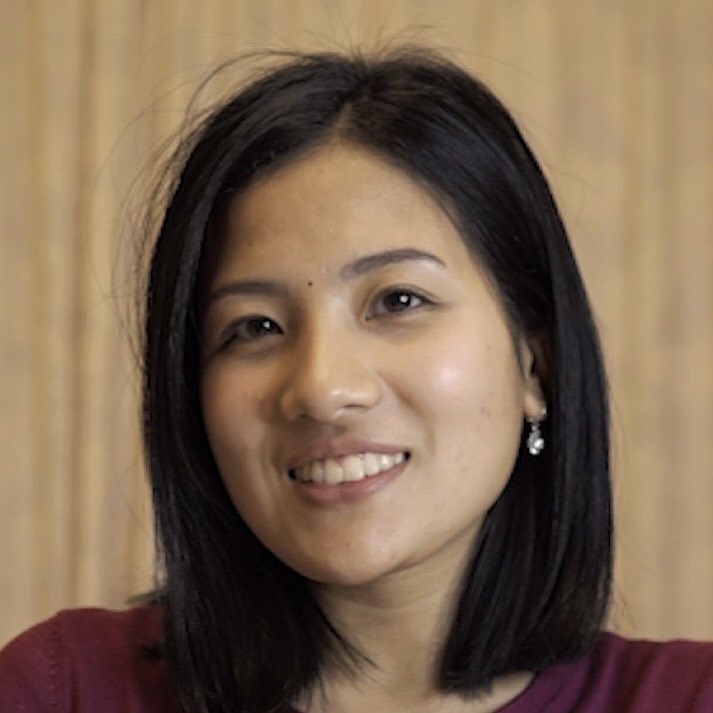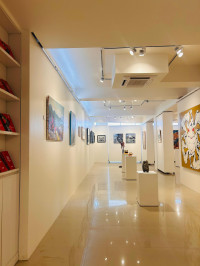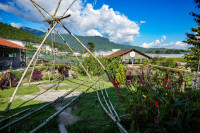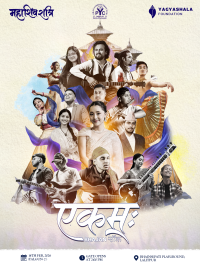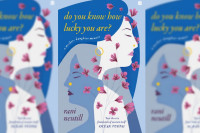Culture & Lifestyle
‘We direly need media houses unaffiliated to business groups’
Rojita Adhikari, who has been doing grassroots reporting for national and international media outlets like The Guardian, Aljazeera, CNN, and Nepali Times, has become a well-known name in Nepal’s independent journalism scene.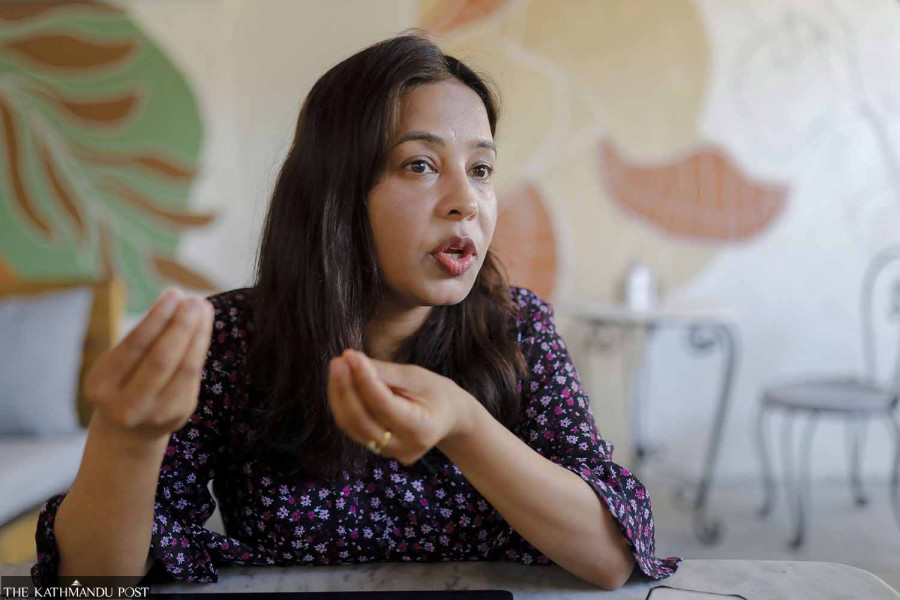
Pinki Sris Rana
Last month, Al Jazeera 101 East's ‘The Widows of Everest’ won the bronze medal at the New York Festivals TV and Film Awards. The documentary, which highlighted the challenges faced by widows of mountaineers from the Khumbu region in Nepal, was co-directed by Rojita Adhikari, a Nepal-based independent journalist. On May 11, the documentary got nominated for the Women’s Solutions Reporting Award at One World Media.
In March, ‘Saving Nepal’s Mother’, Adhikari's first documentary as a director, also for Al Jazeera's 101 East, earned rave reviews for depicting the heart-wrenching reality of maternal mortality in the rural parts of Nepal.
“We hear about the decrease in maternal mortality rate every year but the situation has hardly changed for the people living in rural parts of Nepal. It is to depict what is happening away from the urban-centric journalism that I work independently trying to bridge the gap,” says Adhikari.
With two critically acclaimed documentaries to her name, Adhikari has earned a reputation as one of the promising names in Nepal's documentary filmmaking landscape. Born and raised in Daman, Makwanpur, Adhikari got her first stint as a journalist when she was only 16. Since then, she has travelled to 72 districts, covering stories from rural Nepal that often do not get covered in mainstream media.
In this interview with the Post’s Pinki Sris Rana, Adhikari talks about her journalism career, what journalism means to her, and her decision to work as an independent journalist.
Tell us about your journey as a journalist. How did it all start?
When I was growing up in Daman, I had a cousin sister who had been a victim of polygamy. Having seen many injustices like this in my village, I travelled to Kathmandu after finishing my SLC [now SEE] to study law and become a lawyer. In Kathmandu, I realised that I first needed to finish grade 12 to be eligible to study law. I chose the humanities programme for my high school, which introduced me to journalism. Studying journalism made me realise the power of the media in highlighting different realities and fighting injustices. That’s when I decided to become a journalist.
At the age of 16, I started interning at a Kathmandu-based radio station, which lasted for 10 months. After that, I got accepted to work as an intern reporter at the Antenna Foundation Nepal. I was later promoted to the post of a producer. It was while working for Antenna Foundation that I got to work on Doko Radio, and this experience proved to be the turning point in my professional life. During my time at Antenna Foundation, our team visited some of Nepal’s remotest parts and set up radio stations with the resources we had and designed radio programmes according to the challenges and lifestyles of people there. I got to visit 40 districts and witnessed the many realities of rural Nepal.
Then in 2010, I got a job in BBC Media Action, where we had to make radio magazines. That was where I learnt a lot about international media and its opportunities. I also discovered my true potential while working there. After working three and a half years at BBC Media Action, the programme I was part of ended. So since 2014, I have been an independent journalist.
That’s eight years as an independent journalist. What made you choose to be an independent journalist?
I worked as a radio journalist for almost nine years. By 2014, I realised that radio was soon coming to an end, and I felt the need to change my gears and that's when I decided to start writing.
But to write an in-depth story that creates an impact takes a minimum of a week or two. Unfortunately, no national dailies in Nepal are down for such tedious work. So, I worked independently, pursuing stories that I believed mattered. Thanks to the savings I had from my time at BBC Media Action, I could sustain myself as an independent journalist.
Walk us through the challenges you faced in your initial days as an independent journalist.
Deciding to become an independent journalist after having worked for an internationally renowned media organisation wasn’t easy. There were moments when I questioned my decision and career trajectory. Some years, I only wrote two to three stories, and that meant minimal income.
My family and friends also started questioning my decision to work as an independent journalist. My parents, who were so proud of me when I was working for BBC Media Action, started worrying that my career had gone haywire.
Things started changing for the better in 2015. When the earthquakes struck the country that year, I started assisting foreign multimedia reporters who had come to Nepal for reporting. Impressed by my work, many of those reporters also started giving me bylines. And that is how I started building my credibility in the international media.
‘Saving Nepal’s Mother’, which explored Nepal’s maternal mortality rate, was the first documentary you directed. How was the audience's reaction to it?
I first started producing multimedia stories on maternal mortality while working at Antenna Foundation. I had even written about the issue for The Guardian and Nepali Times. But many people came to me saying that my articles weren’t based on facts because many organisations that conducted research on the subject matter showed that Nepal’s maternal mortality rate was declining. But the point I was trying to make with the articles was that the maternal mortality rate hadn’t declined as much in rural parts of Nepal. But once the documentary came out, people couldn’t question the video's credibility because the visuals were all there for them to see. Although text is my favourite medium, I know the power of multimedia.
There’s this belief that the international media coverage on Nepal is mostly limited to stories of poverty and hardships from Nepal. What do you have to say about this?
Even though positive stories from Nepal do get covered by the international media, the majority of their coverage on Nepal is about poverty and hardships. That is probably the case because we haven’t yet mastered the skill to sell positive stories. Or it could also be because poverty and hardships are still a reality for the majority of the population living in rural parts of Nepal.
Your documentary ‘The Widows of Everest’ recently won a bronze medal at the New York Festivals TV and Film Awards. What were the challenges that were involved in making of the doc, and why do you think it resonated so much with people?
The major challenge we faced while making the documentary was convincing our sources to share their stories with us. Many of the widows we talked to understandably didn’t want to talk about their loss and the challenges they faced. They were also worried that their answers would do more harm than good to the community’s reputation. It took us a while to gain their trust and convince them they were actually speaking up for women like them.
On a personal level, making the documentary was challenging because it was my first documentary as a co-director. We had to shoot additional audiovisuals at a time when Covid-19 cases in the country were increasing rapidly. While filming, I contracted Covid-19 and almost died. It was scary.
I think this documentary was able to grab people’s attention because the majority of stories of Sherpa mountaineers that get covered highlight the risks of their professions. But with this documentary, we tried to explore the challenges and struggles of wives and families of mountaineers.
What do you think about the current state of all forms of journalism in Nepal?
The majority of Nepal’s population lives in the rural parts of Nepal, but Nepal’s journalism is too urban-centric. The stories that do come from the districts come from stringers based in district headquarters. Nobody actually goes to the rural parts of the rural regions to bring their issues to national attention. The national dailies are so busy covering current affairs that they hardly have the time and resources to cover other stories.
Also, we direly need media houses unaffiliated to business groups. The presence of such independent media houses will help improve the quality of journalism in our country.
The interview has been edited and condensed for clarity.




 20.12°C Kathmandu
20.12°C Kathmandu